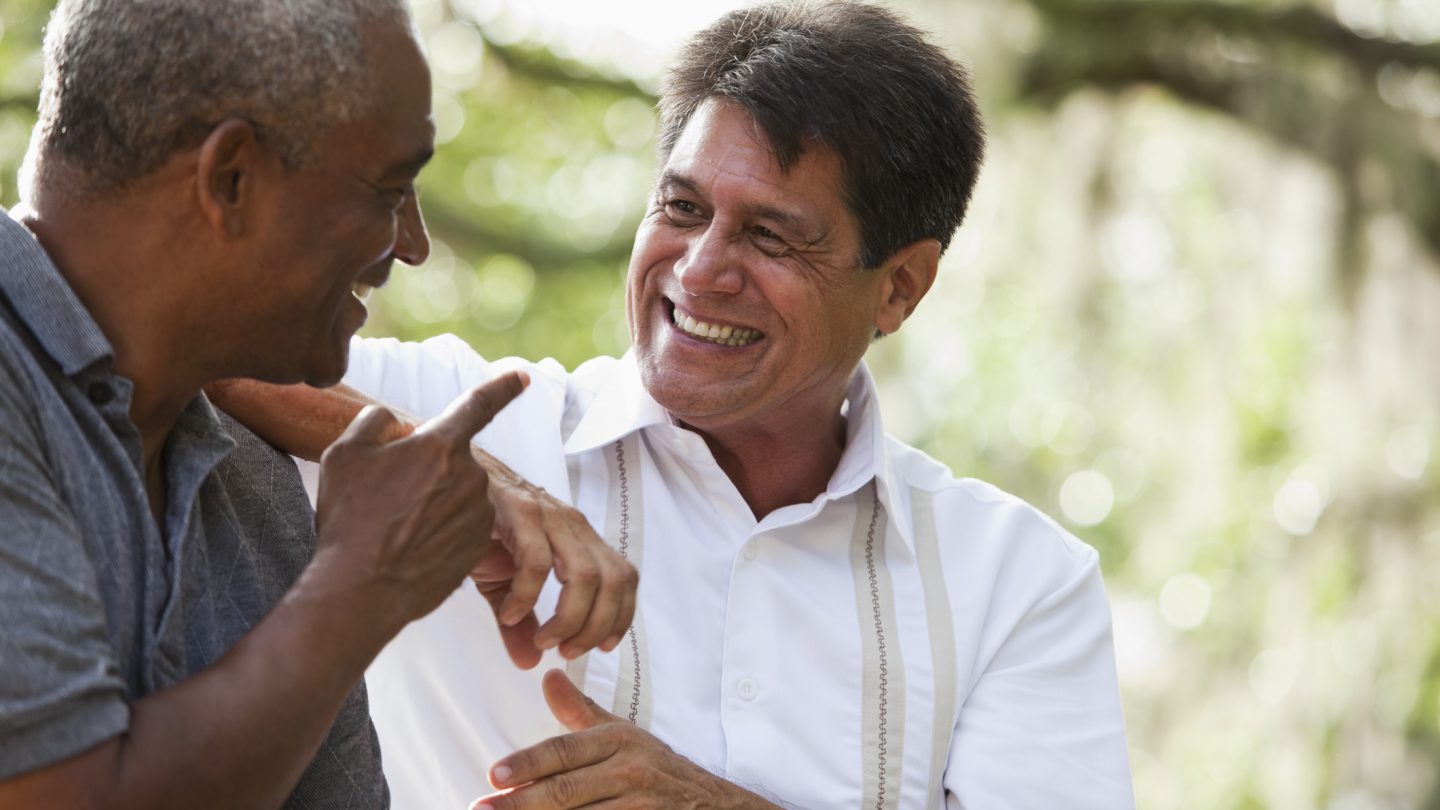Written by: Wendy Harris, Community Development Coordinator
Over the last few months I have been thinking about the labels we attach to age and older people.
Questions I have been pondering:-
- What is the definition of an older person? Who decides?
- Why do we categorise people by age?
- Who thinks its ok to be considered an older person at 50? and
- Is it natural to only want to mix with older people when you are 50 plus?
What is the definition of an older people? Who decides?
The Department of Work & Pensions define an older person from the age of 50, and they say by 2020 over 50’s will make up over a third of the working population. However, the state retirement age is now 65 years and upward, depending on your current age. This makes me wonder why we are still considered older at 50 when the state expects us to work for a minimum of 15 years beyond that age, and even then, there is no obligation for people to stop working.
Public Health England state that generally people are living longer, with most people expected to live into late 70’s and 80’s and some till they are in their 90’s and beyond. There are of course exceptions, due to health and social inequalities.
So, isn’t it time to reconsider the definition of the older person, as life expectancy has improved and we are all living and working for longer? 50 may now be the new 40!
Why do we categorise people by age?
Is age a social construct? People I have met through my work at LinkAge Network, in their 50’s, 60’s and 70’s think so. We grew up in a different world from our parents and have had different life experiences and expectations. We were the generation who challenged the stereotypes that went before, in terms of age, race and gender.
We had better educational opportunities. We became more politicised and fought for better worker’s rights, women’s rights, equal pay, race equality, better childcare services, LGBT equality and financial independence for women. We campaigned for nuclear disarmament and with the anti-apartheid movement. We have also made demands to successive governments for better housing and improving health equality.
And therefore we don’t necessarily want to be categorised in an age box by others. We have been trying to break out of those boxes most of our lives, and age is not what determines us as individuals.
We are people with varied lifestyles and interests, with skills, knowledge and creative ideas not determined by our age, we are more demanding.
Who thinks it’s ok to be considered old at 50?
The majority of people over 50 today, will still be working and will be sharing their skills and experiences with others in the workforce. Do they consider that lunch clubs and organised social activity in the daytime are for them, when they are getting on with their day to day responsibilities at work and home?
We often hear these comments when out and about with LinkAge Network –
“Why are you working with people of 50? That’s not old?”
“I don’t think many people in their 50’s are around in the daytime, these days”
“Who has time to get involved, we are all busy working?”
Therefore, maybe it is time for the state, our services, and organisations to catch up with the reality of what defines older age in the 21st century.
People over 50 have interests that will vary, and a traditional offer for ‘older’ people is not necessarily what we are looking for or would even consider as an option. The spectrum of interests and opportunities we engage with, will not be defined by our age. We want to mix with people of all ages, to share and learn from each other. It’s part of being human and being part of a community. We will have higher expectations of enriching our lives in later life.
We also will be demanding for more involvement in the design of services and activities. When there is no involvement in decision-making, it just perpetuates more of the same, leading to the stereotyping of ‘age defined’ activities and services ‘provided for, not with’ people.
We are individuals who will vote with our feet, dance on tables and do our own thing and we don’t consider ourselves old in our 50’s and beyond!
Is it natural to only mix with people over 50?
How many of us think of age when we decide to get involved in a new activity? What drives our involvement? I would argue that age is not at the forefront of our thoughts, its more about passions we have and gifts that we want to do more with or share with others.
In the last few months talking with a range of people over 50, through my work, with friends, family and neighbours, many seem to be thinking the same way. There are often discussions to be had about why BAB projects and others work with people from 50 or 55 years. There is concern from others about being labelled as an older person at 50, when many do not feel or identify as such. And there is a general concept that being defined as an older person is a negative experience.
So, in conclusion, why are we creating more projects that are often restricted by age, whether it is a young people’s project or an activity for older people? If we want to improve social cohesion, a sense of community and encourage connections between people of all ages, why are we creating these artificial barriers that perpetuate division in our communities. I think it’s time for a rethink. Let’s talk about this!
This new piece of research on loneliness with mainly younger, ‘older’ people may be of interest too – click here.
If you would like to contact Wendy Harris about this blog post then please email wendyharris@linkagenetwork.org.uk.


